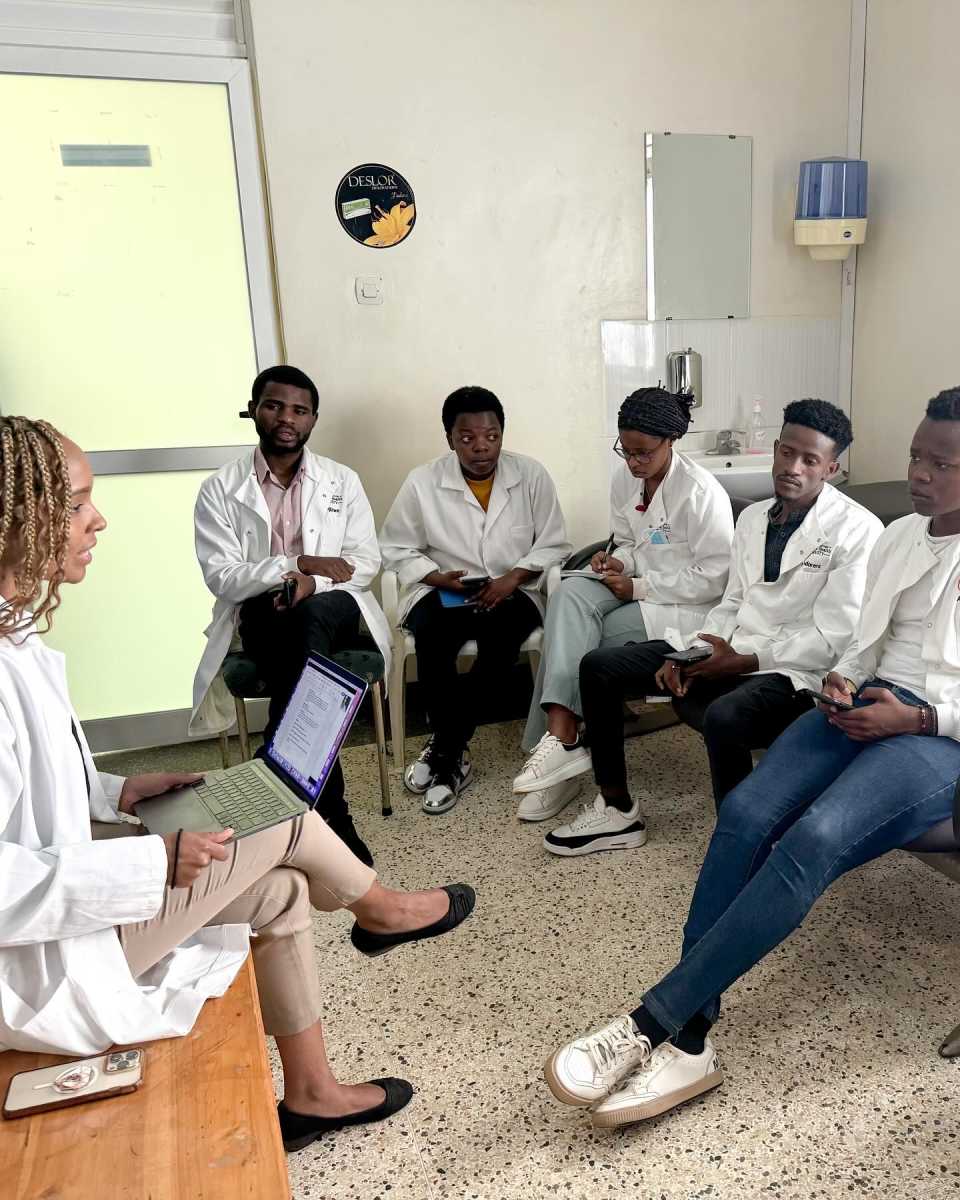I will serve as Visiting Faculty and lead a dermatology clerkship to teach current medical students foundational principles to treat dermatological conditions. Through traditional didactics, case-based discussion, laboratory practice, and direct patient care, I will teach skin disease and disorders in the outpatient clinic setting. I will also teach via bedside rounds in the inpatient wards. Medical students who I teach will go on to graduate from medical school and serve as physicians in Rwanda’s urban and rural settings.
I will serve the MBBS (medical) program. There are 108 students enrolled – mostly from Rwanda, with few from the East African region. We will treat over 200 patients from Butaro District Hospital (BDH), which includes the Butaro Cancer Center of Excellence, which until recently was the only hospital in Rwanda offering care for patients with cancer. Rwanda faces unique healthcare challenges, including limited resources and infrastructure. By serving as volunteer faculty I will empower medical students to serve their community in the future.
By participating in this program I will provide education that will inspire a generation of graduating physicians. Through education we can address gaps in knowledge as well as stigma as it relates to dermatological conditions. This partnership will foster an international connection between Rwanda and UCLA, one of the top ranked hospitals in the world. I hope that my efforts will builds relationships that will ultimately contribute to global health equity. I will also have an opportunity to learn from the people of Rwanda. Learning how to give the best care in resource limited settings is a crucial skill and will help me grow as a medical professional.








I got to spend the week working with an incredible group of young Rwandan medical students, teaching them about dermatology in a clinic setting. They were incredibly grateful for the opportunity to learn from American physicians and gain a global perspective in treating skin conditions. I was able to learn about the stigma that many patients face in their country and was challenged to find ways to provide care in a resource limited setting. I met and worked with several local physicians and shared insight into how our treatment algorithms vary and discussed ways to potentially collaborate in the future. Not only has this experience helped to inspire some of the students to pursue dermatology, but it has also inspired me to continue doing global health work. I will cherish this trip and all of the friendships I have gained.